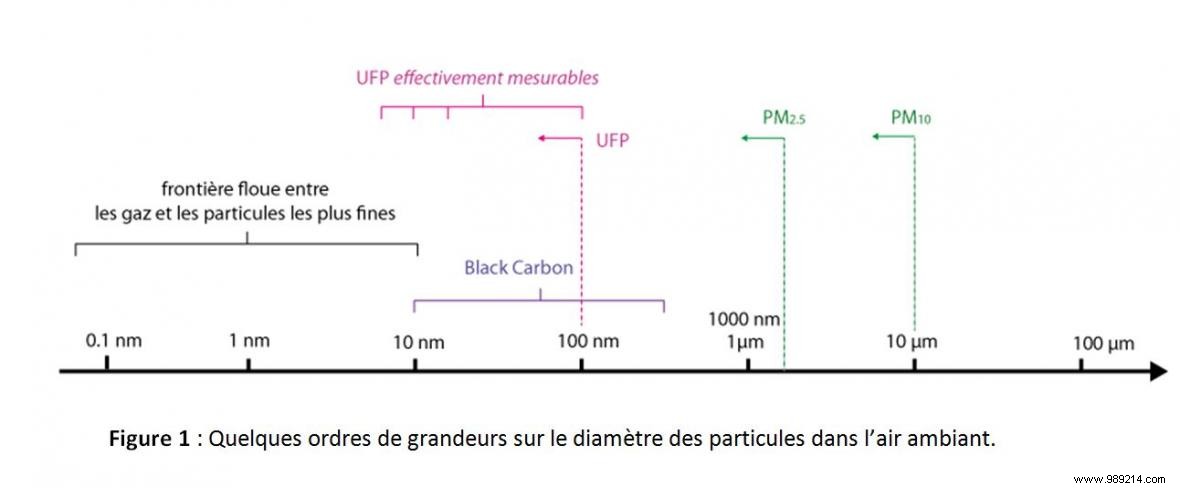According to a recent study conducted in France, many carcinogenic nanoparticles are present in the urine of children. These particles from air pollution are known to increase the risk of cancer and cardiovascular disease.
Particulate Matter (PM) is the particles suspended in the Earth's atmosphere. For example, PM2.5 whose diameter is less than 2.5 micrometers , the famous "fine particles". We can also mention PM10, PM1.0 (very fine particles) and PM0.1 (nanoparticles). Mainly generated by diesel pollution, but also by wood heating, nanoparticles are the most dangerous for health.
These particles indeed increase the risk of cancer and cardiovascular disease . However, all ages are concerned, even at the fetal stage. Indeed, nanoparticles can penetrate the placental barrier.
A press release published by the Strasbourg Respire collective on November 11, 2020 relates to a new study conducted by Tim Nawrot from the University of Hasselt (Belgium). The person concerned measured the presence of "black carbon" in the urine of 27 Strasbourg children. Recall that black carbon is a sub-classification of particles comprising a range of diameters from 10 nm to 500 nm (see ranking below).

According to the results, each sample contained over a million nanoparticles per milliliter of urine. Tim Nawrot has also explained that there is a significant link between the level of particles in the urine and the distance of the child's residence from a road axis. This conclusion confirms that of another study conducted in Antwerp (Belgium) by the same researcher in 2017.
There is no doubt that children's urine contains nanoparticles due to their excessive exposure to diesel pollution . Strasbourg Respire explains that in France, the diesel fleet is the main source of nanoparticles, but that other sources of pollution also play a role. Examples include wood heating or industries related to incineration or papermaking.
In its press release, Strasbourg Respire calls on public authorities to step up measures to combat air pollution. The collective calls for the establishment of low emission zones which may exclude vehicles running on diesel. We should also mention a reduction in collective or individual heating with wood as well as a strengthening of control and penalties for emissions from industries.
Finally, the collective recalls an important piece of data in the current health context. Fighting against air pollution is also important, because it is responsible for more than 15% deaths in Covid-19 patients.